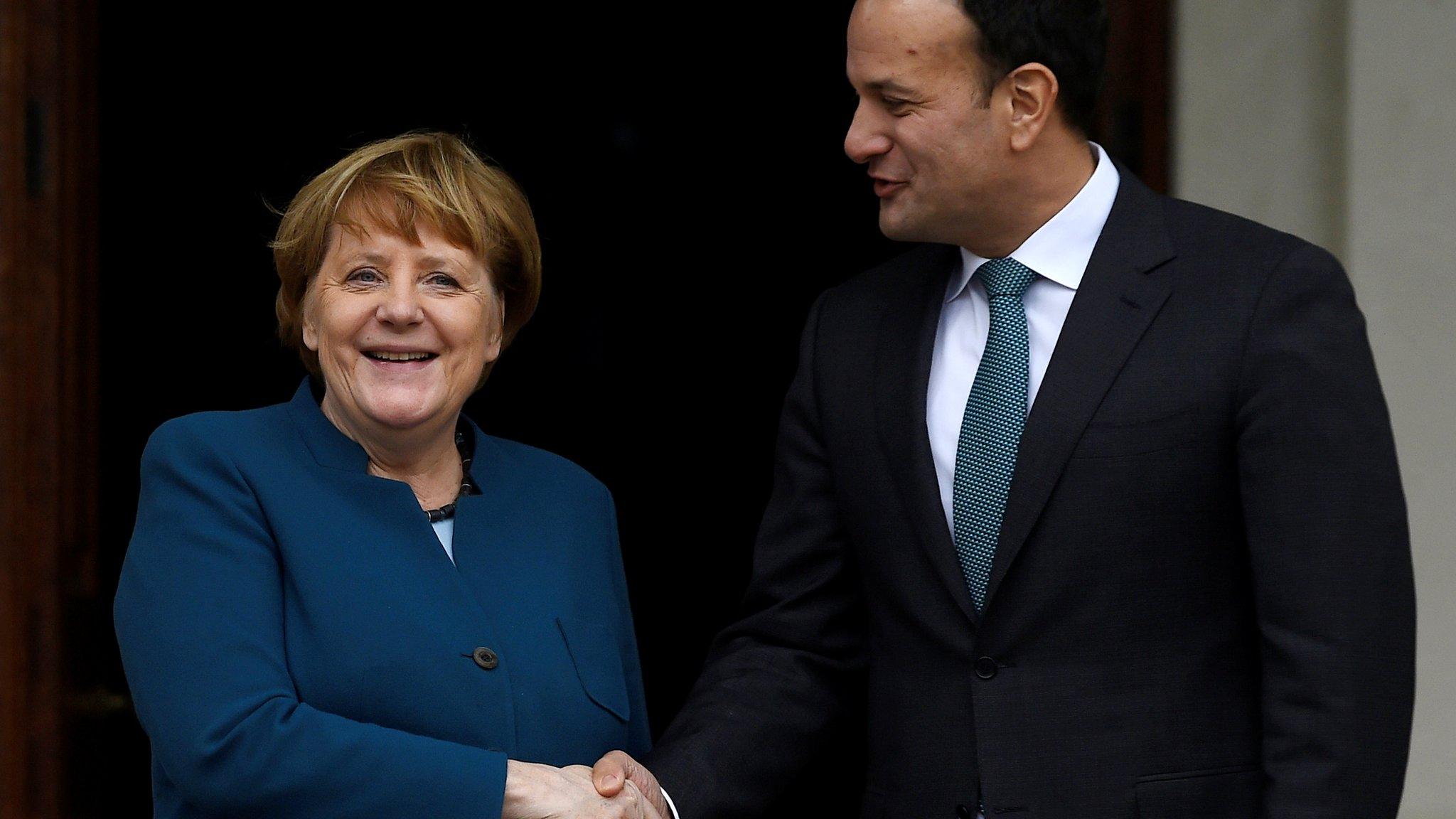Brexit extension veto by EU unlikely, says Leo Varadkar
- Published
Brexit extension veto unlikely
It is unlikely an EU 27 country will veto a UK request for a delay to Brexit, the Irish prime minister has said.
Leo Varadkar said a country "wouldn't be forgiven" if it vetoed an extension as that decision would cause hardship to Ireland and other EU countries.
The UK is set to leave the EU on 12 April but a deal has not been approved by Westminster.
Prime Minister Theresa May has asked for a further extension until 30 June.
Any extension to the UK's departure would have to be unanimously approved by EU leaders.
Taoiseach (Irish prime minister) Leo Varadkar told Irish broadcaster RTÉ that, while it was "always a possibility", it was highly unlikely that a veto would be used.
He said any country that vetoed the UK's extension request could "find themselves on the other end of that veto power in the future".
Longer delay 'makes sense'
Mr Varadkar added that the European Council is working to agree Brexit on a unanimous basis and a veto is rarely used.
However, he acknowledged the increasing frustration in some countries in the EU further away from the UK, such as Malta or Lithuania, as Brexit continues to dominate EU business.
Theresa May has written to European Council President Donald Tusk to request an extension to the Brexit process until 30 June but says if MPs agree a deal, the UK should be able to leave before European parliamentary elections are held on 23 May.
EU leaders are set to meet on Wednesday to discuss the proposal, while the EU's chief Brexit negotiator Michel Barnier will visit Dublin on Monday for talks with Mr Varadkar.
Mr Varadkar has previously said that a longer Brexit delay "might make more sense" than the UK seeking "an extension every couple of weeks or every couple of months, because that just adds to the uncertainty for citizens, for businesses and for farmers".
However, French Europe minister Amelie de Montchalin said such a delay would require the UK to put forward a proposal with "clear and credible political backing".
A senior EU source told BBC Europe editor Katya Adler that Donald Tusk would propose a 12-month "flexible" extension, with the option of the UK leaving sooner once Parliament had ratified a deal.
No deal Brexit 'makes no sense'
Meanwhile, former Taoiseach Bertie Ahern has said that a no-deal Brexit would be a disaster for Northern Ireland and the Republic.
He said the potential consequences are so dire that the House of Commons will not let it happen.
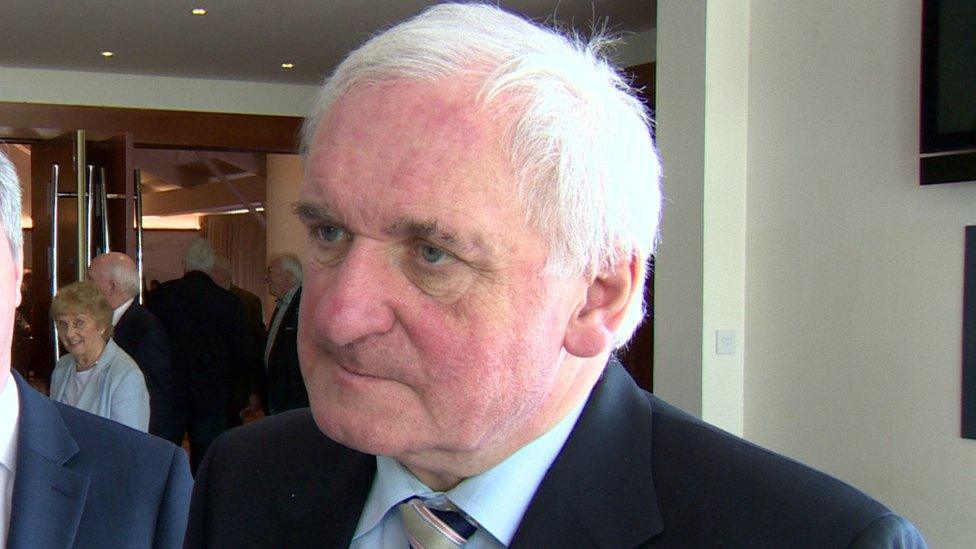
Former Taoiseach Bertie Ahern said he believed a no-deal Brexit made "absolutely no sense"
Mr Ahern was speaking in Belfast after attending the unveiling of a memorial to Ian Paisley.
When asked about a no-deal Brexit, Mr Ahern said he has always contended "it won't happen because I think it's bad for Europe, bad for the United Kingdom and bad for Ireland".
"It's very bad for the island of Ireland," he added. "It would create all kinds of divisions and I think undo a lot of good work that we've all been engaged in over a long time.
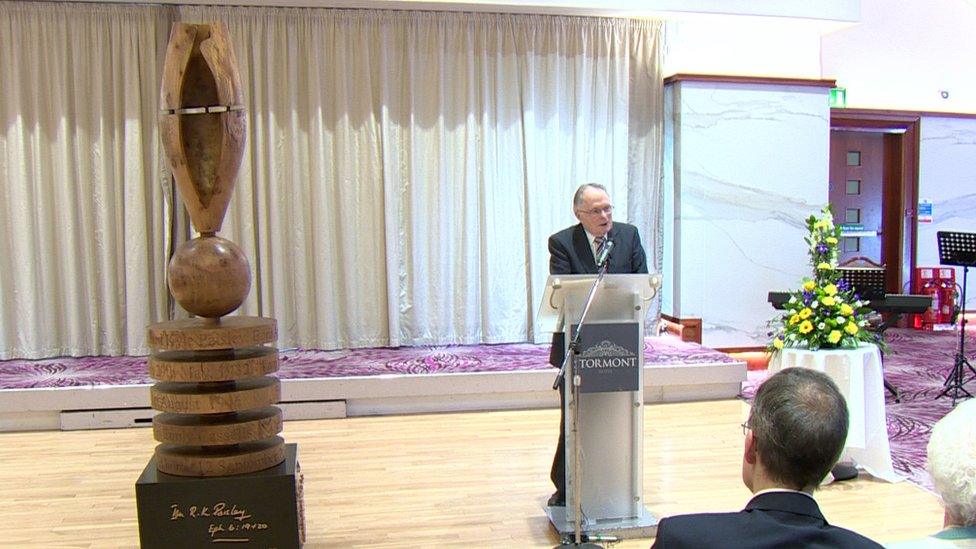
Mr Ahern was speaking at the unveiling of a memorial to Ian Paisley who died in 2014
"It makes absolutely no sense, economically, culturally, socially.
"On this one I think I trust the judgement of the House of Commons because I don't think there will be a majority of people that will allow a no deal.
"I hope I'm right on that."
- Published6 April 2019
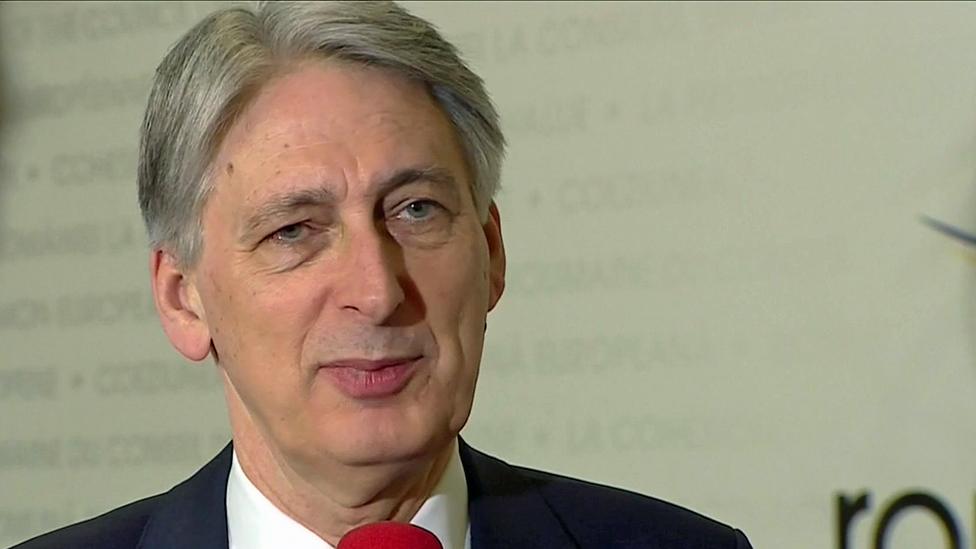
- Published3 April 2019
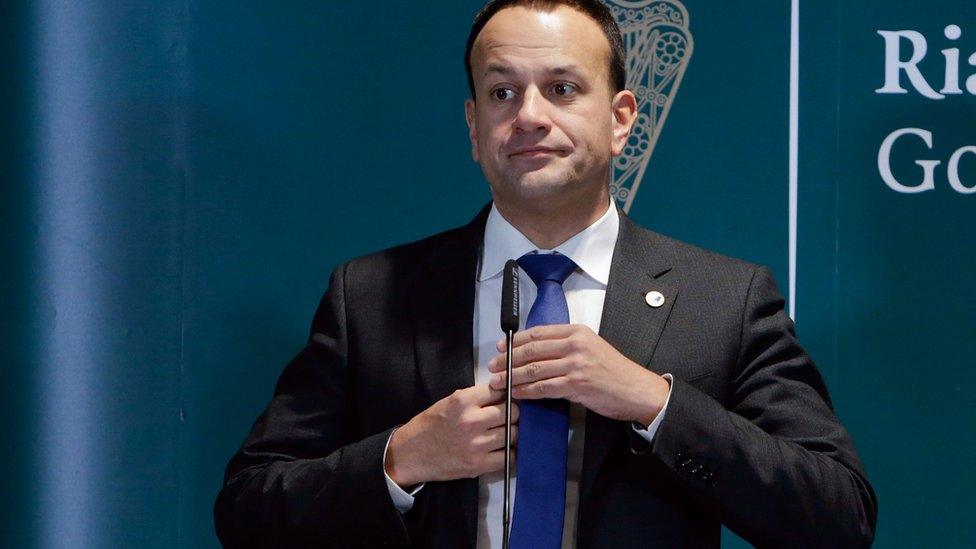
- Published4 April 2019
